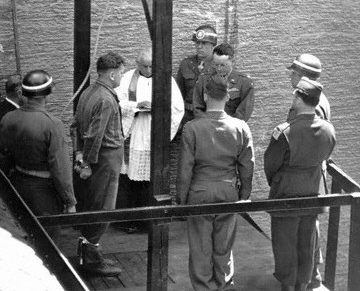Ramirez v. Collier
Scoreboard
Case Snapshot
Over millennia of human history and across many faith traditions, those condemned to death have been accompanied to their deaths by members of the clergy, who have prayed over them during their executions. And for 300 years, the American legal tradition has consistently allowed the condemned to be prayed over by clergy of their own faith. All that changed in 2019 when the State of Alabama denied a Muslim prisoner the presence and prayer of an imam before his execution. When the State of Texas attempted to do the same thing to a Buddhist prisoner just a few weeks later, the Supreme Court stepped in, ruling in Murphy v. Collier that Texas had to permit the prisoner’s Buddhist spiritual advisor to accompany him to the death chamber. Since then, the Supreme Court has similarly protected Christian prisoners in both Texas and Alabama. Despite these clear rulings and centuries of history, including its own traditional practices, the Texas Department of Criminal Justice (TDCJ) imposed two rules – one preventing clergy from praying aloud and one preventing clergy from touching the inmate – contrary to centuries of tradition. Death row inmate John Henry Ramirez asked the Supreme Court to order TDCJ to follow the Constitution, federal law, and its own historic practice, and allow his spiritual advisor—a Southern Baptist pastor—to pray aloud for him and hold his hand in his final moments.
Status
Share this Case

Case Summary
View: A HISTORY OF CLERGY PRESENCE IN THE EXECUTION CHAMBER
The right of the condemned to prayer before an execution long predates the formation of the United States, which inherited the tradition from England. Since before the colonial era, it was common for ministers to accompany the condemned to the gallows, where they would pray with, minister to, and touch those who are about to die. General George Washington honored such requests by deserters executed during the Revolution, and the United States also honored such requests by Nazi war criminals after the Nuremberg Trials.
Today, condemned prisoners of all faiths often request such prayers in the death chamber from their clergy as a way to “get right with God” and safeguard their eternal destiny. And some religious traditions require such ministrations to those marked for death. The federal government and state governments have routinely allowed clergy to minister to the condemned in the death chamber—both by praying aloud and holding their hand.
In 2019, the state of Alabama denied a Muslim prisoner the presence and prayer of an imam before his execution. When the Texas Department of Criminal Justice (TDCJ) attempted to do the same thing to a Buddhist prisoner just a few weeks later, the Supreme Court stepped in, ruling in Murphy v. Collier that Texas had to permit the prisoner’s Buddhist spiritual advisor to accompany him to the death chamber. Since then, the Supreme Court has similarly protected Christian prisoners in both Texas and Alabama. Despite these clear rulings and centuries of history, including its own traditional practices, TDCJ recently imposed two rules – one preventing clergy from praying aloud and one preventing clergy from touching the inmate – contrary to centuries of tradition. TDCJ said these long-accepted prayers would “disrupt the execution” despite any evidence that they had or would.
Death row inmate John Henry Ramirez appealed to the Supreme Court seeking prayer and touch from his Southern Baptist pastor during his final moments. Becket filed a friend-of-the-court brief with prominent constitutional scholar and Stanford Law School Professor Michael McConnell and the Harvard Law School Religious Freedom Clinic. Becket’s brief describes the long history of audible clergy prayer and clergy touch and explains why that means Ramirez ought to prevail under the Free Exercise Clause of the First Amendment and the Religious Land Use and Institutionalized Persons Act.
On November 1, 2021, the case was argued before the Supreme Court. In an 8-1 vote, on March 24, 2022, the Court ruled in favor of allowing clergy to audibly and physically pray with Ramirez. The Court cited Becket’s amicus brief on the long history of clerical prayer present at executions and agreed that prohibiting such practices substantially burdened the prisoner’s religious exercise and that Texas could not satisfy strict scrutiny.
Importance to Religious Liberty:
- Individual freedom: A fundamental part of human dignity is recognizing the human desire for religious faith.
- RLUIPA: The federal Religious Land Use and Institutionalized Persons Act – passed, like the Religious Freedom Restoration Act (RFRA), with strong bipartisan support – protects the human dignity of prisoners by ensuring that their religious liberty is protected and bans discriminatory land-use rules that are often used to prevent disfavored groups from building houses of worship.